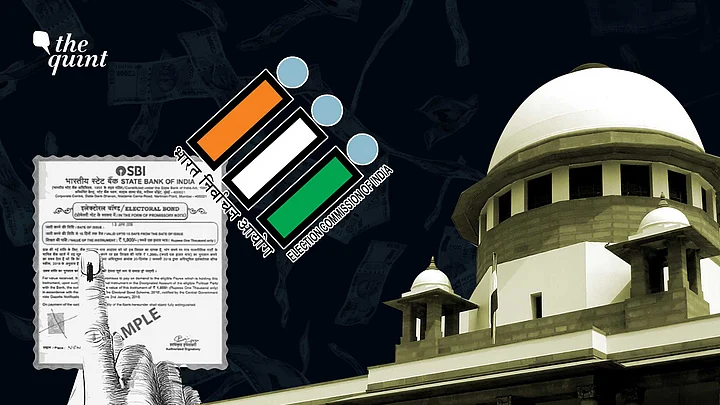Fresh data on the purchase patterns of electoral bonds emerged over the weekend. This data was for the bonds sold and encashed before 12 April 2019.
According to an investigation by The Quint, “The new figures revealed that the Bharatiya Janata Party (BJP) received Rs 2,658.35 crore in electoral bonds between 9 March 2018 and 11 April 2019. The Congress party received Rs 530.1 crore, Trinamool Congress got Rs 97.28 crore, and the Biju Janata Dal (BJD) got Rs 239 crore.”
The Election Commission of India (ECI) had earlier uploaded the data provided to it by the State Bank of India (SBI) on electoral bonds purchased and encashed since 2019, a day before its court-ordered deadline (one can see the Excel link here for accessing the data for conducting an independent analysis).
The BJP (the ruling party), from March 2018 to January 2024, has received than 50 per cent of its overall funding from electoral bonds.
Related to the BJP or not, some of the companies that bought these bonds reportedly received certain favours (getting business contracts or cases charged against them by central government agencies suddenly disappearing from the news).
Breaking down the data, between March 2018 and April 2019 alone, out of electoral bonds worth Rs 4,002 crore, the BJP got Rs 2,658.35 crore. A similar trend can be seen for the total bonds sold from March 2018 to January 2024, where the BJP, with Rs 8,718.85 crore, got 50 per cent of all bonds.
All this has happened while private company donors on the list have profited in the last ten years of the Modi government, at a time when middle-income citizens have vanished, and low-income classes have struggled amidst rising prices and increasing joblessness.
A critical point that most investigators are arguing now is that the SBI hasn’t shared the unique identification number of the electoral bonds’ purchase data. This number, exposed by a journalist formerly with The Quint and often referred to as the “matching code”, could have established a connection between the purchaser of the bond and the beneficiary political party. Her expose video is attached below.
The Supreme Court (SC) has now issued a notice to the SBI on its failure to share these numbers. The SC must force agencies to investigate and make the ruling party more accountable for its actions where there is proof of quid pro quo.
The apex court in its earlier order had clearly observed that the SBI data could determine the basis of quid pro quo arrangements as explained here, and the same is being done in the excellent data mining centres of independent newsrooms (The Quint, The Wire, Scroll, Newslaundry etc.). Also, see here for a more detailed mapping exercise done by Himank Singla between the volume of private company donations made by firms like Wonder Cement Limited, Serum Institute of India, Qwik Supply Chain Limited, Vedanta Limited, Arcelor Mittal Group etc., and the nature of direct benefits received from the party in power.
The Modi government, which champions itself on caring for spirited nationalism and celebrating India as the Mother of Democracy has in fact legalised corruption through the electoral bonds funding scheme, reflecting the worst case of democratic ethics for any party in power.
How the apex court now looks more closely into the discussed evidence of alleged cases for quid pro quo arrangements (as it has envisaged itself) may go on to define and shape the future of India’s electoral democracy, especially with respect to transparency and accountability of political funding.
Independent media platforms have also done a phenomenal job of exposing the corruptness of the electoral bonds scheme (see here for a thread). The SC has the information it needs to assert its power, and perhaps even call for a delay (even if possible) to the upcoming Lok Sabha election.
Given how most parties, especially the BJP, have sourced their funds, there remains a strong case for the SC to exercise its discretion in upholding the constitutional integrity of the electoral process.
Can this lead to the ruling party being disqualified from contesting in the upcoming national elections? Very unlikely. But is there a juridical case for setting a strong deterrent (in the case of a political party) against committing legalised corruption through a funding scheme? That remains to be seen.
What’s clear now is how India’s electoral democracy remains challenged by an enlarged trust deficit and an illiberal turn like never seen before. It exhibits a harsh reality which, if not criminalised or adequately accounted for, may erode the core fundamentals of state-citizen trust, along with one’s inner faith and confidence in democratic and electoral ethics.
(Deepanshu Mohan is Professor of Economics and Director, Centre for New Economics Studies (CNES), at the Jindal School of Liberal Arts and Humanities, OP Jindal Global University. This is an opinion piece and the views expressed are the author's own. The Quint neither endorses nor is responsible for them.)
